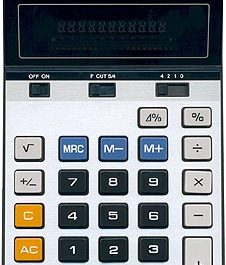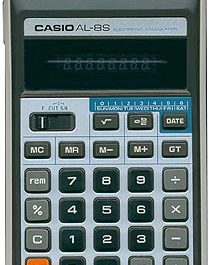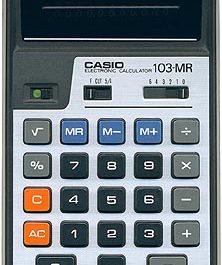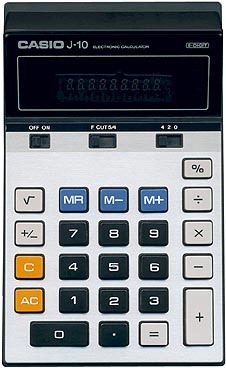
The Casio J-10 calculator, released circa 1984, was a desktop-friendly device designed for everyday calculations. Its large, slightly wedge-shaped case, made from a combination of matte and glossy black plastic, provided a sturdy and visually appealing housing. The raised and tilted display area featured a neutral plastic filter, framed in black, with the brand and model number printed in white text.
The brushed aluminum keyboard surround, printed in black and silver with reversed-out text for the switch labels, added a touch of elegance to the calculator’s design. The large, squashy keys with individual key escutcheons, a trademark of Casio, offered a satisfying tactile experience with a return click.

Powered by a NEC D1877C 8436P9 CPU and equipped with an 8-digit blue VFD display, the Casio J-10 boasted standard four functions, including addition, subtraction, multiplication, and division. It also featured percentage calculations, square root functionality, change sign, and a three-function memory. Users could switch between decimal point modes and choose from rounding options such as floating decimal, round down, or round up/down.
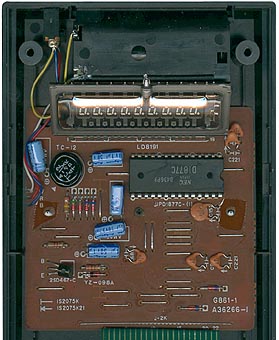
While the Casio J-10 provided a reliable and user-friendly experience for most calculations, it did have some limitations. For instance, it could only display seven digits for negative numbers, lacked a recovery function, and did not have a dedicated memory clear function. Additionally, users had to be cautious when using the (AC) button, as it would clear the memory, potentially leading to data loss.
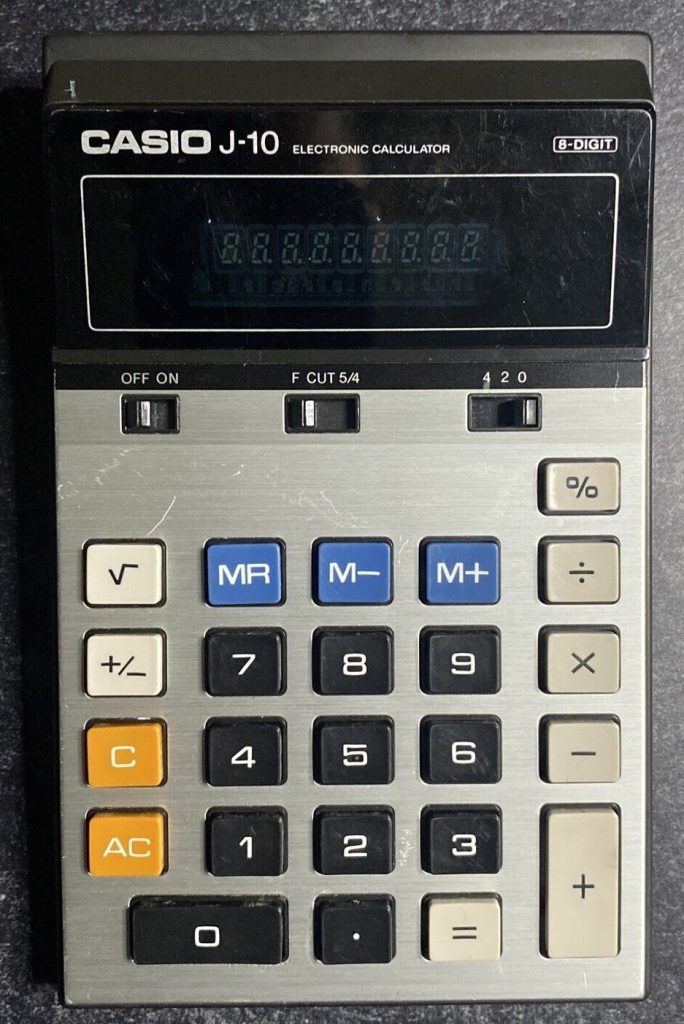
Logic:
- (C) cancels the last number entered, and (AC) clears the entire calculator
- Input overflow is suppressed, ignoring the ninth digit
- Negative numbers are represented by a “-” to the left of the number, but limited to seven digits
- Automatic constant on multiplication and division, but double operators required for addition and subtraction
- Overflow shows the first seven digits (six if negative) with an “E” in the first digit, and is not recoverable
- Divide by zero shows “E.” in the far-right digit and is not recoverable
- Change sign can be used mid-number entry, but not on eight-digit numbers
- Square roots of negative numbers are allowed, resulting in a negative number
- A switch changes the fixed decimal mode between 0, 2, or 4 decimal places
- Another switch selects between floating decimal [F], round down [CUT], and round up/down [5/4]
- Memory store is not indicated, and (AC) clears the memory
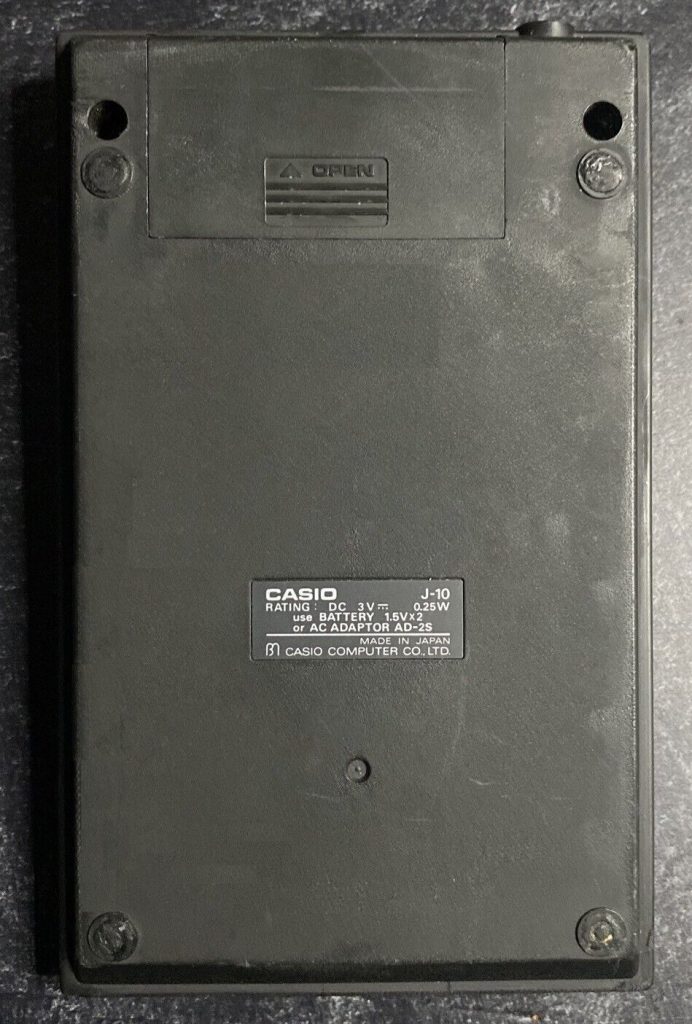
The Casio J-10 calculator was a reliable and functional desktop companion for basic calculations, despite some limitations in its logic and memory management. Its sturdy construction and user-friendly design made it a practical choice for everyday use in the mid-1980s.
